7967932055807,
8392912666879,
7967933956351,
8392912896255,
7967978815743,
8774096191743,
7967922880767,
8392958771455,
7967928615167,
8392958247167,
7967975801087,
8774096814335,
7967983927551,
7967985500415,
8774108938495,
8774105170175,
7920384737535,
8392959426815,
7932939337983,
8392959787263,
7896491000063,
8774111330559,
7936964591871,
8774113394943,
8392337293567,
7920388604159,
7936954597631,
7920390340863,
8774115852543,
7936961708287,
8774117294335,
8392338047231,
8916356006143,
8935362625791,
8284293234943,
8935362560255,
7967932055807,
8392912666879,
7967933956351,
8392912896255,
7967978815743,
8774096191743,
7967922880767,
8392958771455,
7967928615167,
8392958247167,
7967975801087,
8774096814335,
7967983927551,
7967985500415,
8774108938495,
8774105170175,
7920384737535,
8392959426815,
7932939337983,
8392959787263,
7896491000063,
8774111330559,
7936964591871,
8774113394943,
8392337293567,
7920388604159,
7936954597631,
7920390340863,
8774115852543,
7936961708287,
8774117294335,
8392338047231,
8916356006143,
8935362625791,
8284293234943,
8935362560255,
7967932055807,
8392912666879,
7967933956351,
8392912896255,
7967978815743,
8774096191743,
7967922880767,
8392958771455,
8392958247167,
7967975801087,
8774096814335,
7967983927551,
7967985500415,
8774108938495,
8774105170175,
7920384737535,
8392959426815,
7932939337983,
8392959787263,
7896491000063,
8774111330559,
7936964591871,
8774113394943,
8392337293567,
7920388604159,
7936954597631,
7920390340863,
8774115852543,
7936961708287,
8774117294335,
8392338047231,
8916356006143,
8935362625791,
8284293234943,
8935362560255,
8127010537727,
7932939239679,
7954239029503,
8242897420543,
7932941762815,
7968034521343,
7954866864383,
7968706134271,
7994147864831,
8932763271423,
8945265115391,
7968706330879,
7972875305215,
8127010537727,
7932939239679,
7932941762815,
7954866864383,
7968706134271,
7994147864831,
8932763271423,
7968706330879,
7972875305215,
7920388604159,
7936954597631,
7920390340863,
7920384737535,
8392337293567,
7967922880767,
7936961708287,
8392338047231,
7896491000063,
7936964591871,
7932939337983,
7967975801087,
7967932055807,
8392959787263,
7967933956351,
7967928615167,
8774117294335,
8774115852543,
7967985500415,
8392959426815,
8284293234943,
8392958771455,
8774113394943,
8392912896255,
8935362560255,
8392958247167,
7967978815743,
9028862869759,
9028855070975,
9028852875519,
9020657238271,
8935362625791,
8916356006143,
8774111330559,
8774108938495,
8774105170175,
8774096814335,
8774096191743,
8392912666879,
7967983927551,
8127010537727,
7932939239679,
7954239029503,
8392337293567,
8242897420543,
7932941762815,
7968034521343,
8392338047231,
7954866864383,
7994147864831,
7968706134271,
8932763271423,
8392959787263,
8774117294335,
8774115852543,
8945265115391,
8392959426815,
8392958771455,
8774113394943,
8392912896255,
8392958247167,
8774105170175,
8774111330559,
8774108938495,
8774096814335,
8774096191743,
8392912666879,
7972875305215,
7968706330879,
7920388604159,
8127010537727,
7932939239679,
7954239029503,
7936954597631,
7920390340863,
7920384737535,
8392337293567,
8242897420543,
7967922880767,
7932941762815,
7936961708287,
7968034521343,
8392338047231,
7896491000063,
7954866864383,
7968706134271,
7994147864831,
7936964591871,
7932939337983,
7967975801087,
7967932055807,
8932763271423,
8392959787263,
7967928615167,
7967933956351,
8774117294335,
8774115852543,
7967985500415,
8945265115391,
8392959426815,
8284293234943,
8392958771455,
8774113394943,
8392912896255,
8935362560255,
7967978815743,
8392958247167,
9028862869759,
9028855070975,
9028852875519,
9020657238271,
8935362625791,
8916356006143,
8774111330559,
7972875305215,
7967983927551,
7968706330879,
8774108938495,
8774105170175,
7967922880767,
7967975801087,
7967932055807,
7967933956351,
7967928615167,
7967985500415,
8392958771455,
8392912896255,
8392958247167,
7967978815743,
9028855070975,
9028852875519,
8774108938495,
8774105170175,
8774096814335,
8774096191743,
8392912666879,
7967983927551,
8916356006143,
8935362625791,
8284293234943,
8935362560255,
8127010537727,
7932939239679,
7967922880767,
7932941762815,
7994147864831,
8945265115391,
8392958771455,
8392912896255,
8392912666879,
7920390340863,
7936961708287,
7896491000063,
7936964591871,
7967975801087,
8774117294335,
8774115852543,
7967985500415,
8774113394943,
7967978815743,
9028862869759,
9028855070975,
8774111330559,
8774108938495,
8774105170175,
8774096814335,
8774096191743,
7967983927551,
7936954597631,
7936961708287,
7936964591871,
7932939337983,
8392959787263,
7967933956351,
7967928615167,
8774117294335,
7967985500415,
8284293234943,
8774113394943,
8392912896255,
8935362560255,
8392958247167,
9028862869759,
9028855070975,
9028852875519,
9020657238271,
8935362625791,
8916356006143,
8774108938495,
8774105170175,
7967983927551,
7936961708287,
7936964591871,
8774117294335,
7967985500415,
8774113394943,
8774108938495,
8774105170175,
7967983927551,
7972875305215,
8392912666879,
8392912896255,
8392958771455,
8392958247167,
8392959426815,
8392959787263,
8392337293567,
8392338047231,
8935362625791,
8935362560255,
7920388604159,
7936954597631,
7920390340863,
7920384737535,
7936961708287,
7896491000063,
7936964591871,
7932939337983,
8392959787263,
8774117294335,
8774115852543,
8392959426815,
8284293234943,
8774113394943,
8935362560255,
9028862869759,
9020657238271,
8935362625791,
8916356006143,
8774111330559,
7920388604159,
8127010537727,
7932939239679,
7954239029503,
7936954597631,
7920390340863,
7920384737535,
8242897420543,
7967922880767,
7932941762815,
7936961708287,
7968034521343,
7954866864383,
7896491000063,
7968706134271,
7994147864831,
7936964591871,
7932939337983,
7967975801087,
7967932055807,
7967933956351,
7967928615167,
7967985500415,
8945265115391,
8284293234943,
7967978815743,
9028862869759,
9028855070975,
9028852875519,
9020657238271,
8916356006143,
7968706330879,
7972875305215,
7967983927551,
8127010537727,
7932939239679,
7954239029503,
8242897420543,
7932941762815,
7968034521343,
7954866864383,
7994147864831,
7968706134271,
8945265115391,
7972875305215,
7968706330879,
8127010537727,
7932939239679,
7932941762815,
7994147864831,
7968706134271,
8932763271423,
8945265115391,
7972875305215,
7968706330879,
8392337293567,
8392338047231,
8932763271423,
8392959787263,
8774117294335,
8774115852543,
8392959426815,
8392958771455,
8774113394943,
8392912896255,
8935362560255,
8392958247167,
8935362625791,
8774111330559,
8774108938495,
8774105170175,
8774096814335,
8774096191743,
8392912666879,
7920388604159,
7936954597631,
7920390340863,
7920384737535,
7967922880767,
7936961708287,
7896491000063,
7936964591871,
7932939337983,
7967975801087,
7967932055807,
7967933956351,
7967928615167,
7967985500415,
8284293234943,
7967978815743,
9028862869759,
9028855070975,
9028852875519,
9020657238271,
8916356006143,
7967983927551,
7967932055807,
8392912666879,
7967933956351,
8392912896255,
7967978815743,
8774096191743,
7967983927551,
8774105170175,
7920384737535,
8392959426815,
7932939337983,
8392959787263,
7896491000063,
8774111330559,
7936964591871,
8774113394943,
8916356006143,
8935362625791,
8284293234943,
8935362560255,
8392337293567,
8392338047231,
8392959787263,
8774117294335,
8774115852543,
8392959426815,
8392958771455,
8774113394943,
8392912896255,
8935362560255,
8392958247167,
8935362625791,
8774111330559,
8774108938495,
8774105170175,
8774096814335,
8774096191743,
8392912666879,
7967922880767,
8392958771455,
7967928615167,
8392958247167,
7967975801087,
8774096814335,
7967985500415,
8774108938495,
8392337293567,
7920388604159,
7936954597631,
7920390340863,
8774115852543,
7936961708287,
8774117294335,
8392338047231,
8242897420543,
8932763271423,
8916356006143,
8935362625791,
8284293234943,
8935362560255,
7936954597631,
7936961708287,
8392338047231,
7936964591871,
7932939337983,
8392959787263,
7967933956351,
7967928615167,
8774117294335,
7967985500415,
8774113394943,
8392912896255,
8392958247167,
8774108938495,
8774105170175,
7967983927551,
9028862869759,
9028855070975,
9028852875519,
9020657238271,
7920388604159,
7936954597631,
7920390340863,
8392337293567,
7967922880767,
7936961708287,
8392338047231,
7967975801087,
7967928615167,
8774117294335,
8774115852543,
7967985500415,
8284293234943,
8392958771455,
8935362560255,
8392958247167,
8935362625791,
8916356006143,
8774108938495,
8774096814335,




Share and get 15% off!
Simply share this product on one of the following social networks and you will unlock 15% off!